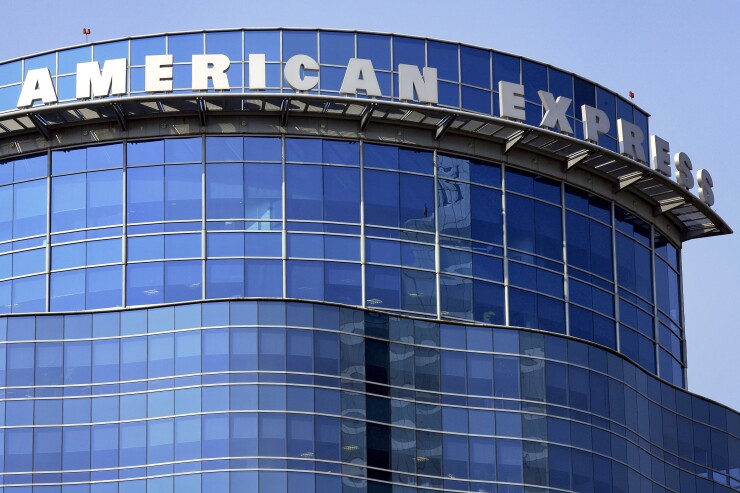American Express' progress with local officials in China regarding card payments provides a potential early advantage against rivals like Mastercard and Visa. But building a market in China has never been easy for a global card brand.
American Express, announcing Friday it has approval to clear card payments in China, has formed a joint venture with Chinese fintech LianLain to build a network to support charges on Amex cards to be settled domestically.
The venture is registered as Express Technology Services Company. Amex has worked with

Friday's announcement is the next step, a "preparatory approval" for a clearing and settlement license in mainland China. It has a year to set up its operation, with the final approval coming from China's central bank. Among other outside companies, U.K. payment processor
"Amex took the first lap in what will surely prove to be a long marathon," said Tim Sloane, vice president of payments innovation at Mercator Advisory Group. "The other networks are likely to follow, but I would take bets that the first few million transactions on these new networks still remain years away."
Amex can use the regulatory approval to build a beachhead to eventually expand beyond clearing and settlement, but building products, marketing and merchant acquiring are separate challenges. "This is on the back end. Penetrating and immersing in the market is another story," said Richard Crone, a payments consultant.
Amex did not return a request for comment by early Friday afternoon. In a statement on
China and India are two of the most attractive markets for U.S. payment companies, given their
But both markets come with regulatory challenges that are as large as the opportunity. Outside companies have traditionally been required to partner with state-controlled UnionPay to process domestic payments.UnionPay's partners in China include Visa, Mastercard and Apple. There's also very little expansion in the other direction, as Chinese payment companies such as Alipay support mostly payments for Chinese travelers in the U.S.
China for years has promised to be more receptive to outside payment companies, most recently announcing in
The primary regulatory issue in both China and India is a local-presence requirement that spells a major investment in facilities and data storage. India's local data storage requirements have recently caused controversy, with
The approval also comes ahead of the
"The People's Bank of China is trying to swim upstream against deglobalization efforts," Crone said. "This is something the bank can easily point to that helps them."





